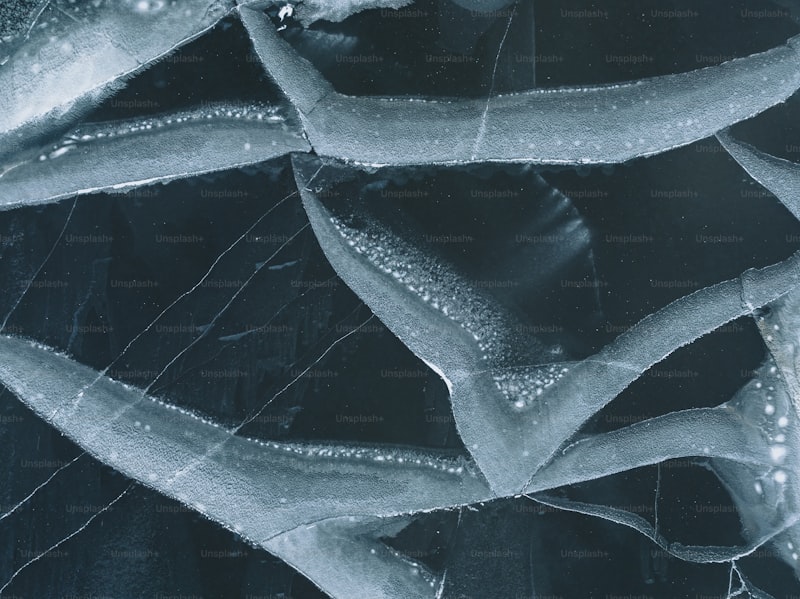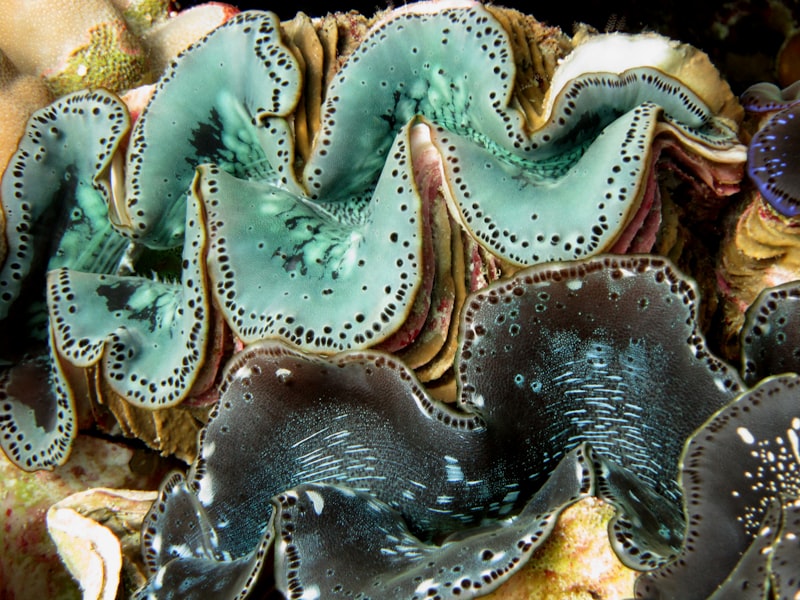Imagine a world where corals provide inspiration for advanced materials that can withstand harsh ocean environments or where deep-sea microbes hold the key to new antibiotics resistant to current diseases. Marine biotechnology transforms these possibilities into realities, offering sustainable solutions for industries ranging from pharmaceuticals to renewable energy.
One of the most remarkable aspects of marine biotechnology is its ability to discover new bioactive compounds. These compounds, often derived from marine organisms like sponges, algae, and even extremophiles from deep-sea vents, possess unique properties that are invaluable to medical and industrial applications. Scientists are continually discovering novel enzymes, anticancer agents, and natural polymers that could revolutionize medicine and biotechnology.
Moreover, marine biotechnology plays a crucial role in environmental conservation. Researchers explore how marine organisms can remediate pollutants, monitor ecosystem health through genetic markers, and even contribute to aquaculture practices that enhance food security.
In essence, marine biotechnology is not just about scientific exploration; it’s about leveraging nature’s blueprints to address pressing global issues. By unlocking the mysteries of the ocean, scientists pave the way for sustainable innovations that benefit both humanity and the marine environment.
With ongoing research and technological advancements, the future of marine biotechnology looks promising. It holds the potential to drive economic growth, protect marine biodiversity, and inspire solutions to some of the world’s most significant challenges. As we delve deeper into the ocean’s depths, the possibilities for innovation in marine biotechnology are as vast as the sea itself.
Unlocking the Secrets of the Deep: Marine Biotechnology Breakthroughs
Did you know that beneath the ocean’s surface lies a treasure trove of potential cures and innovations? Marine biotechnology, a burgeoning field that explores the biological resources of the sea, is unlocking remarkable secrets that could revolutionize various industries. From pharmaceuticals to sustainable materials, scientists are diving deep to harness the power of marine organisms.
One of the most exciting areas of research in marine biotechnology is the discovery of novel compounds from marine organisms. These organisms, adapted to survive in extreme conditions, produce chemicals and proteins that are not found in terrestrial environments. Researchers are particularly interested in these compounds for their potential medical applications, such as new antibiotics or treatments for cancer.
Imagine coral reefs that not only beautify the ocean but also hold the key to advanced medical treatments. These delicate ecosystems are under threat, yet their potential to provide bioactive compounds for pharmaceuticals remains vast. By studying how corals defend against disease and environmental stress, scientists aim to develop new therapies that could benefit human health.

Moreover, marine biotechnology extends beyond medicine. Researchers are exploring how marine organisms can contribute to sustainable solutions. For instance, algae and other marine plants are being investigated for their potential as biofuels or sources of renewable chemicals. These organisms grow rapidly and can thrive in conditions that are unsuitable for traditional crops, offering a promising alternative for a greener future.
From Lab to Ocean: How Marine Biotechnology Is Revolutionizing Ocean Research
Imagine a world where scientists delve into the depths of the ocean not just with diving gear, but armed with cutting-edge biotechnological tools. Marine biotechnology is turning this vision into reality, transforming the way we explore and understand the vast mysteries beneath the waves.
In the realm of ocean research, marine biotechnology acts as a powerful ally, bridging the gap between traditional marine science and advanced biotechnology. It harnesses the unique properties of marine organisms, from microscopic algae to deep-sea creatures, to develop innovative solutions for pressing global challenges.
One of the most exciting aspects of marine biotechnology is its potential to unlock new medical treatments. Researchers are mining the ocean’s biodiversity for novel compounds that could lead to breakthrough drugs for cancer, antibiotic-resistant infections, and other diseases. For example, coral reefs produce compounds that show promise in fighting cancer cells, offering hope for future treatments.
Moreover, marine biotechnology is pivotal in sustainable resource management. As our planet faces environmental pressures, such as climate change and overfishing, marine biotechnologists are developing eco-friendly alternatives. They are exploring ways to cultivate marine species for food, biofuels, and even biodegradable plastics, reducing our dependence on traditional resources that strain the environment.

In addition to its applications on Earth, marine biotechnology is also shaping our exploration of space. Researchers are studying extremophiles—organisms that thrive in extreme conditions like the deep ocean or hydrothermal vents—to understand how life could exist on other planets. By studying these resilient creatures, scientists gain insights into the potential for extraterrestrial life and advance astrobiology research.
The journey from lab to ocean is not without challenges. Conducting research in marine environments is costly and logistically complex. Yet, the promise of marine biotechnology continues to drive scientists forward, inspiring new discoveries and collaborations across disciplines.
Harnessing Nature’s Pharmacy: Biotech’s Impact on Marine Medicine
Marine organisms, from vibrant coral reefs to the darkest depths, produce bioactive compounds with incredible medicinal properties. These compounds have shown promise in treating conditions ranging from cancer to infectious diseases. Scientists are delving deeper into these underwater ecosystems, uncovering new species and novel biochemical pathways that could lead to groundbreaking therapies.
What makes marine medicine so remarkable is its diversity. From the humble sponge to the elusive deep-sea jellyfish, each organism harbors its own unique arsenal of chemical defenses. These natural compounds, honed over millions of years of evolution, often exhibit potent biological activities that are yet to be fully explored.
Take, for instance, the promising anti-inflammatory properties found in certain marine algae. These organisms produce compounds that could potentially alleviate chronic inflammatory conditions in ways that traditional medicines cannot. By harnessing these natural resources, researchers hope to develop safer and more effective treatments for millions of patients worldwide.
The field of biotechnology plays a crucial role in unlocking the potential of marine medicine. Through advanced genetic sequencing and synthetic biology techniques, scientists can now manipulate marine organisms to produce targeted therapeutic compounds at scale. This capability not only accelerates drug discovery but also ensures sustainability by reducing the need for harvesting wild populations.
Oceanic Marvels: Cutting-Edge Innovations in Marine Biotechnology
In the vast depths of the ocean, scientists are unlocking astonishing secrets and innovations through the lens of biotechnology. Imagine a world where marine organisms inspire groundbreaking technologies, shaping the future of medicine, energy, and environmental conservation. This frontier of scientific exploration delves into the very essence of marine life, harnessing its potential like never before.
Marine biotechnology merges biology with technology, drawing from the rich biodiversity of our oceans. Researchers study organisms ranging from microscopic algae to majestic whales, each offering unique biological marvels. These organisms have evolved over millennia, adapting to their environments in extraordinary ways that challenge our understanding and inspire innovation.
One fascinating area of advancement is biomimicry, where scientists mimic natural processes and structures found in marine life to develop new materials and technologies. For instance, the ability of certain fish to thrive in deep-sea pressures has inspired the design of pressure-resistant materials used in underwater equipment and even space exploration suits.
Another frontier lies in pharmaceuticals derived from marine organisms. Coral reefs, known as the “medicine cabinets of the sea,” harbor organisms that produce compounds with potential therapeutic benefits. These compounds are being researched for their ability to treat diseases such as cancer and Alzheimer’s, offering new hope in the field of medicine.
Moreover, marine biotechnology plays a crucial role in sustainable practices. From biodegradable plastics made from algae to biofuels derived from seaweed, these innovations aim to reduce our reliance on fossil fuels and mitigate environmental impact. By harnessing natural resources responsibly, we can pave the way for a greener future.
Marine biotechnology stands at the forefront of scientific innovation, drawing inspiration from the ocean’s vast biodiversity. As researchers continue to explore and understand the complexities of marine life, the possibilities for cutting-edge technologies are endless. This intersection of biology and technology not only pushes the boundaries of human knowledge but also holds promise for addressing some of our most pressing global challenges.
Frequently Asked Questions
How is marine biotechnology being used to address environmental challenges?
Learn how marine biotechnology tackles environmental challenges through innovative applications like bioremediation, sustainable aquaculture, and biomaterials development.
How does marine biotechnology impact biodiversity and conservation efforts?
Discover how marine biotechnology influences biodiversity and conservation efforts, exploring its role in developing sustainable solutions for marine ecosystems through innovative research and biotechnological applications.
What is marine biotechnology and how does it contribute to ocean science?
Marine biotechnology utilizes marine organisms and their derivatives for scientific advancements. It contributes to ocean science by exploring genetic resources, developing new pharmaceuticals, and enhancing environmental monitoring technologies.
What are the potential applications of marine biotechnology in medicine and industry?
Explore the diverse applications of marine biotechnology in enhancing medical treatments and advancing industrial processes. Discover how marine organisms are utilized for developing new pharmaceuticals, biofuels, bioplastics, and environmental monitoring tools.
What are the latest innovations in marine biotechnology research?
Discover the latest innovations in marine biotechnology research, exploring advancements such as bioactive compounds from deep-sea organisms, sustainable aquaculture technologies, and bioremediation solutions for ocean pollution. Stay informed about cutting-edge studies enhancing our understanding and conservation of marine ecosystems.


